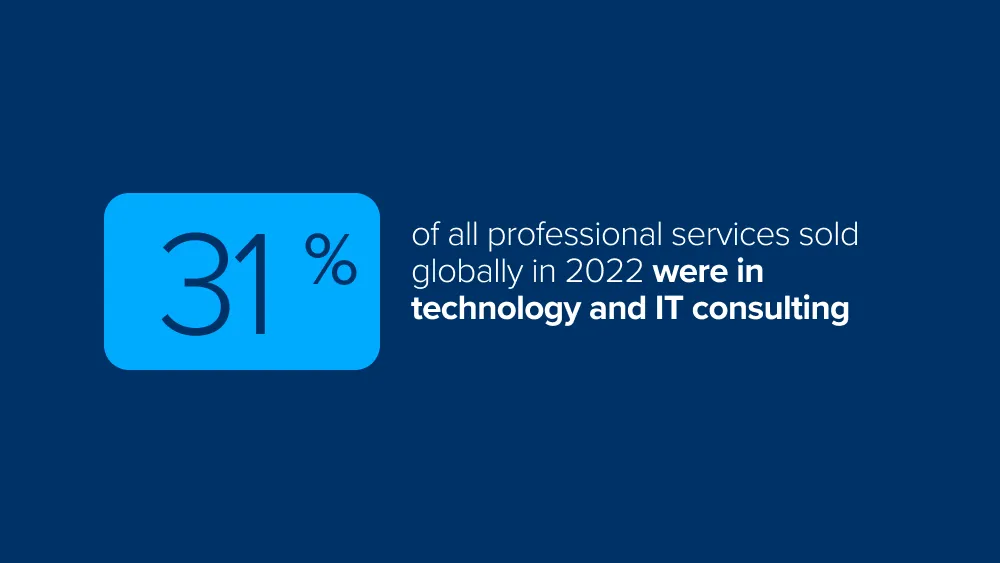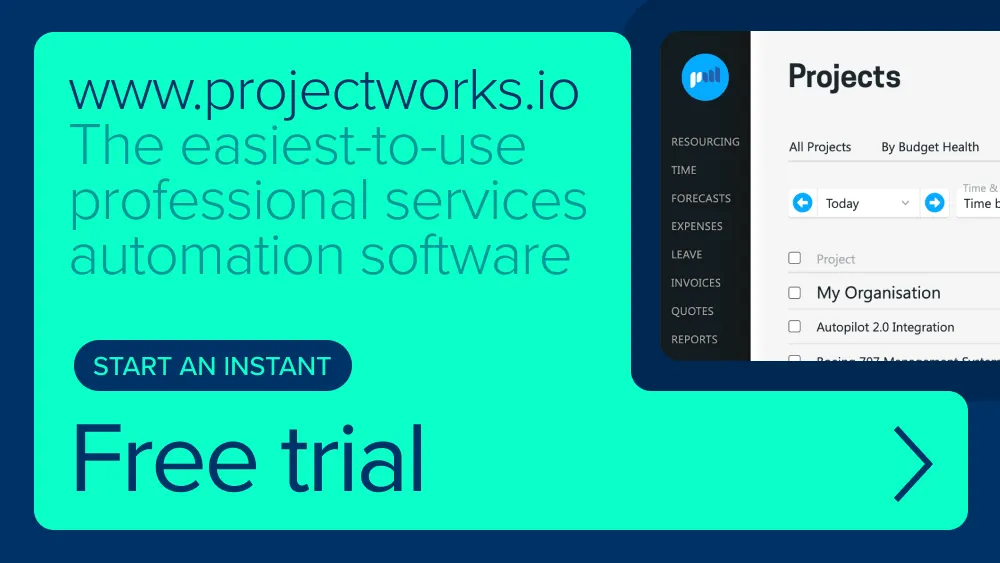What are professional services? (examples + key statistics)

What kinds of businesses are professional services firms? Find out here.
Professional service firms sell specialized expertise/knowledge to clients. Their staff typically have high-level qualifications and unique experience, and work billable hours that are charged to clients by the firm.
Clients enlist these businesses for their expertise in solving problems, making informed decisions, or enhancing business operations. Although there are many different types of professional services, they all follow a similar model.
Read more: The 4 types of professional services.
Providing expert skills is the key to their success, which relies on the knowledge and reputation of their employees. Professional services are all about people, be it clients or employees.
Examples of professional services
- Supply Chain Management
- Information Security Consulting
- Crisis Management Consulting
- Occupational Health and Safety Consulting
- Risk Management Services
- Intellectual Property Consulting
- Customs and Trade Consulting
- Organizational Development
- Data Analytics Services
- Immigration Consulting
- Software Development Services
- Mergers and Acquisitions Advisory
- Mobile App Development
- Content Creation and Copywriting Services
- IT Project Management
- Quality Assurance Consulting
- Sustainability Consulting
- Management Consulting
- IT Consulting
- Engineering Services
- Architectural Services
- Marketing and Advertising
- HR Consulting
- Healthcare Consulting
- Public Relations (PR)
- Environmental Consulting
- Training and Development
- Creative Services
- Business Process Outsourcing (BPO)
- Executive Coaching
- Cybersecurity Consulting
- Health and Safety Training
- Workplace Diversity and Inclusion Consulting
- Business Analytics Consulting
- Government Policy Consulting
Key statistics about professional services businessesThe professional services industry is undergoing remarkable growth, with the Global Professional Services Market reaching a valuation of USD 6.02 Trillion in 2022 and projected to exceed USD 10.17 Trillion by 2031.The sector's significance is further underscored by the expected revenue surge in the United States, anticipated to reach USD 31,950.0 million in 2024, making it a major player in the global landscape. Let's delve into key statistics that shed light on the industry's trajectory and the factors contributing to its expansion.Quick statistics:
- The professional services industry has a projected growth rate of 6.4% through 2032.
- The emphasis on digitizing businesses is identified as a major growth driver.
- Approximately 80% of professional services firms plan to increase their investment in talent retention in 2023.
- Technology & IT consulting services constituted 31% of all professional services sold globally in 2022.

What is Professional Service Automation (PSA) Software?
Professional Services Automation (PSA) is specialized software that automates the essential tasks for professional services, such as service delivery, resource planning, finances, project management and business performance.
Learn more: What is professional services automation (PSA) software?

Related Articles

Is Your Consulting Firm Worth Buying?
Most consulting firms grow by default. Fewer grow by design. That distinction matters more than many leaders realise, especially if the goal is to build a firm that attracts a strong revenue multiple. In the first episode of Season two of The Projectworks Podcast, Mark Orttung and Dominique Rennell introduced the Growth Maturity Model they are developing to help consulting leaders answer a hard but necessary question: is your firm actually built in a way someone else would want to buy it?
.webp)
.png)